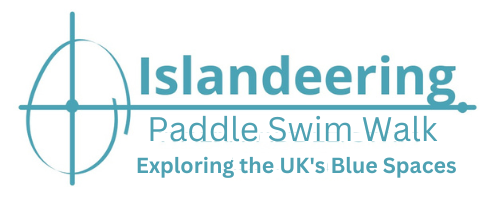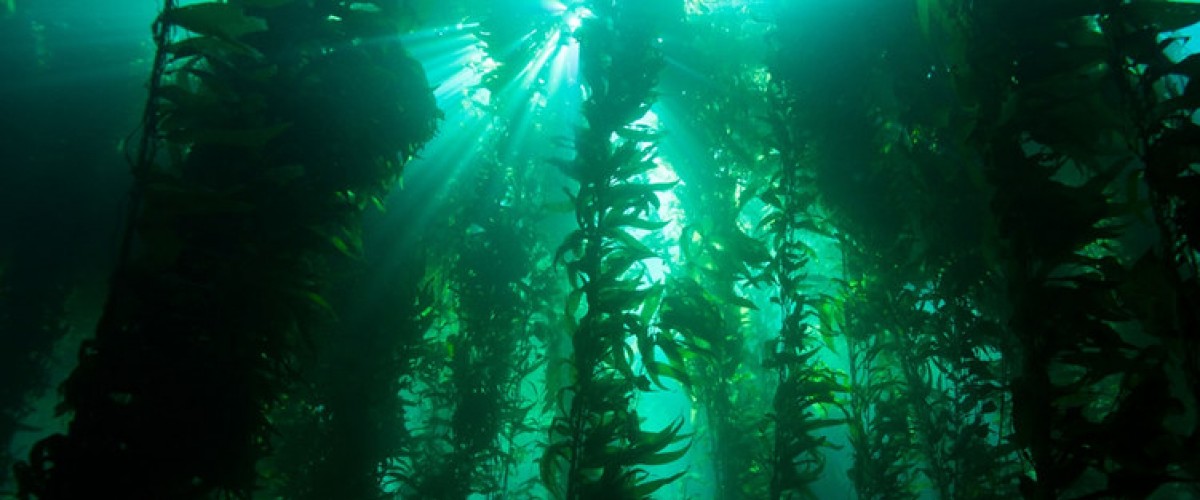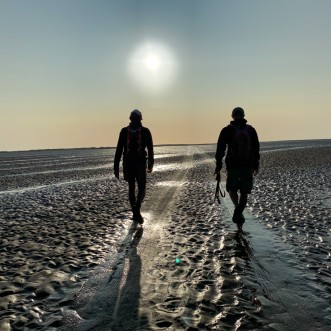From estuaries and sheltered sea lochs to wild open water, the UK’s coasts and seas are simply amazing. Full of habitats from kelp forests to coral reefs these precious waters support a huge array of wildlife including dolphins, whales, and sharks, and rarities like seahorses and the pink sea fan. Sadly though, despite so many of us loving this precious blue space, our seas are under significant threat. A combination of overfishing, increased traffic in some of the busiest shipping lanes in the world, pollution, and climate change is threatening the very existence of oceanic wildlife and disturbingly our seas receive very little protection. This blog outlines the issues, and what we can do to put the wild back into our much-loved oceans.
Top threats to our oceans
- Pollution
Marine pollution come from a variety of sources with over 80 percent coming from land-based activities. Plastic accounts for 85% of marine litter, putting all marine life at serious risk. Plastic debris causes the death of more than a million seabirds every year, as well as more than 100,000 marine mammals The most common plastic found on beaches is cigarette butts, mainly composed of microplastics. There are multiple sources of these tiny fragments which, when ingested, cause long-term mortality in marine life and serious human health impacts if they enter the food chain. The levels of chemical pollution in oceans are also highly disturbing and mainly arise from oil spills, and land run-off of fertilisers and pesticides used in agriculture. Factories and industrial plants discharge sewage and other chemical runoff into the oceans. Air pollution is responsible for almost one-third of the toxic contaminants and nutrients that enter coastal areas and oceans. Even sunscreens and pharmaceutical waste add to ocean pollution. Noise pollution comes from human activity like commercial shipping, seismic surveys, oil exploration, and military sonar. All noises cause serious threats to all marine life. It causes stress and can drive an animal from its habitat, it reduces their ability to communicate, navigate, locate prey, avoid predators, and find mates. Noise can even lead to physical injuries and death. Finally, Aquaculture has a very large impact on ocean health with salmon farms ruining marine ecosystems, through chemical pollution and parasites that quite literally eat fish alive. Scotland is one of the biggest producers of farmed salmon in the world. They are also fed by huge volumes of wild-caught fish, processed into food, the extraction of which has massive impacts on overseas ecosystems.
- Overfishing
Large-scale and intensive fishing depletes resources and destabilises ecosystems with an estimated 30% of fish stocks globally being overfished. Commercial fishing also damages the seabed and discarded ghost nets kill huge numbers of marine mammals through entanglement. Despite this impact, only 2.8% of the ocean’s surface is protected from the effects of fishing.
- Climate change
Global warming is causing significant alterations in ocean chemistry and many oceanic processes, and it is threatening many species of marine life that cannot cope with higher temperatures. The increasingly acidic and oxygen-depleted waters are leading to “dead zones” which are deserted by wildlife that quite simply can’t ‘breathe’ in these conditions. New human activities in the oceans, particularly in energy production and mining, also poses new challenges for the conservation of marine life. It is estimated that if we continue on this path, more than half of the world’s marine species could be on the verge of extinction by 2100.
What can we do to protect our oceans
- The big picture
There are some great organisations out there that are doing a huge amount of work to highlight and address the issues affecting our oceans. Lend your voice to them, sign a petition, join in with their volunteer programmes, make a donation – they desperately need your help. Here are a few to think about:
Whale and Dolphin Conservation (WDC) – the leading global charity dedicated to the conservation and protection of whales and dolphins and the ocean through campaigns, lobbying, advising governments, conservation projects, field research and rescue. More info here
Surfers Against Sewerage (SAS) – a highly impactful charity that campaigns for clean oceans, rivers, lakes; ending plastic pollution on beaches; restoring the ocean wilderness; and stopping global heating. More info here
The Marine Conservation Society (MCS) – campaign to defend Marine Protected Areas, reduce marine pollution, promote sustainable seafood. More info here
World Wildlife Foundation (WWF) – a global campaigning and conservation charity working for nature positive seascapes to halt declines and recover and grow ecosystems and marine resources. More info here
Plastic Oceans UK – a charity that works with business, scientists and policy makers to stop plastic reaching the sea. More info here
Blue Marine Foundation – a charity that campaigns to stop overfishing. More info here
Ghost Fishing UK – a charity that surveys and removes nets, fishing gear and other marine debris that pose a threat to marine life in UK waters. More info here
Royal Society for the Protection of Birds (RSPB) – a large charity that fights for more Marine Protection Areas. More info here
- Out on the sea
There are a couple of actions we can all take when we are out on the water:
- Always pick up litter from beaches and the ocean and take home to dispose of responsibly.
- Use reef-friendly sunscreens – traditional sunscreens contain the coral-damaging chemicals – oxybenzone and octinoxate. So avoid using anything that contains these chemicals. Our favourite brand of reef-safe sunscreen is Sun Bum – a mineral and not chemical based product
- Be aware of marine mammals and code of conduct when close to them as follows:
- Seals – see British Canoeing advice here
- Birds – British Stand Up Paddleboad Association (BSUPA) and the Royal Society for the Protection of Birds (RSPB) teamed up to promote a code of conduct to enjoy bird life without adversely impacting breading areas or negatively affecting the bird life in other ways. See here
- Marine mammals – heed advice on paddling in the vicinity of whales, dolphins and porpoises given by the Scottish Marine Wildlife Watching Code – see here
- At home
Any one of these following actions will help save the seas
- Choose sustainable seafood – look for the Marine Stewardship Council (MSC) and Aquaculture Stewardship Council (ASC) labels. Their blue and green fish logos on your seafood ensures your fish can be traced back to sustainably-managed fisheries and farms.
- Be careful what you put down your sink and drain – chemicals are not removed by water companies before wastewater is discharged into river, so most of it will end up in the ocean. With over 30,000 chemicals used in household products, many are known as forever chemicals as they persist in our waterways and exert their effects for decades. So we can all make a difference by avoiding putting household cleaning chemicals, personal care products, decorating solvents/paints etc, pharmaceuticals, and garden chemicals down the loo, sink or drain. Also, try to wwitch to eco-products as there are lots of alternatives to using polluting cleaning products.
- Refuse to use single-use plastic – we should stop using plastic bags, takeaway coffee cups and plastic water bottles and use reusable alternatives. There are no excuses either for using plastic cotton buds, straws, and plastic packaging.
- Beware of microplastics – the UK government has banned the sale of products containing microbeads in personal care and cosmetic products. There are still plenty of other sources of microplastics though, including glitter and clothes – the biggest culprit still being single-use plastic which breaks down into smaller pieces. We need to reduce our plastic use.
- Choose clothing brands that use discarded plastic fishing nets to help remove this horror from the ocean. Some of our favourites are:
- OceanR clothing
- Patagonia NetPlus clothing range
- Try and reduce your own carbon footprint to help tackle climate change
Here’s to the day we can all walk on a plastic-free beach
Photo Credit “Kelp Forest” by NOAA’s National Ocean Service is licensed under CC BY 2.0.


